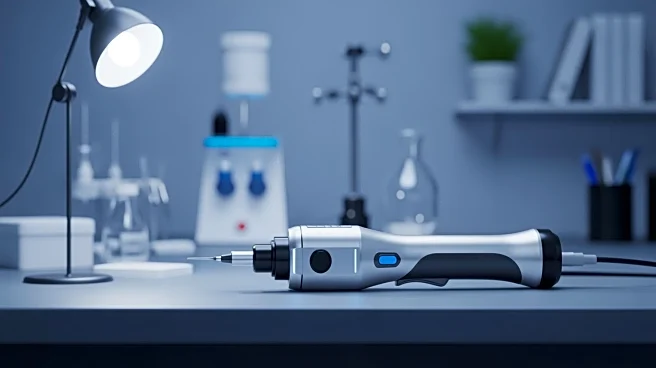What's Happening?
uniQure has announced a significant setback in its efforts to secure FDA approval for its gene therapy candidate, AMT-130, aimed at treating Huntington's disease. The company revealed that the FDA no longer considers the data from its Phase I/II studies
sufficient for a Biologics License Application (BLA) submission. This marks a reversal from previous guidance where the FDA had indicated that data from these studies could serve as primary evidence. The unexpected shift has led to a dramatic 62% drop in uniQure's stock price. The company had previously reported promising results, including a 75% slowing of disease progression in patients treated with a high dose of AMT-130.
Why It's Important?
This development is crucial as it highlights the challenges faced by biotech companies in navigating regulatory pathways for innovative therapies. The FDA's decision impacts not only uniQure's financial standing but also the potential availability of a new treatment for Huntington's disease, a condition with limited therapeutic options. The setback underscores the complexities of clinical trial data interpretation and regulatory approval processes, which can significantly affect the biotech industry's ability to bring new treatments to market. Stakeholders, including patients and investors, are directly affected by these regulatory decisions.
What's Next?
uniQure plans to engage urgently with the FDA to explore a path forward for the accelerated approval of AMT-130. The company is also looking to advance discussions with regulators in the European Union and the United Kingdom. The outcome of these interactions will be critical in determining the future availability of AMT-130. Additionally, the company expects to receive final minutes from its pre-BLA meeting with the FDA within 30 days, which will guide its next steps.

















